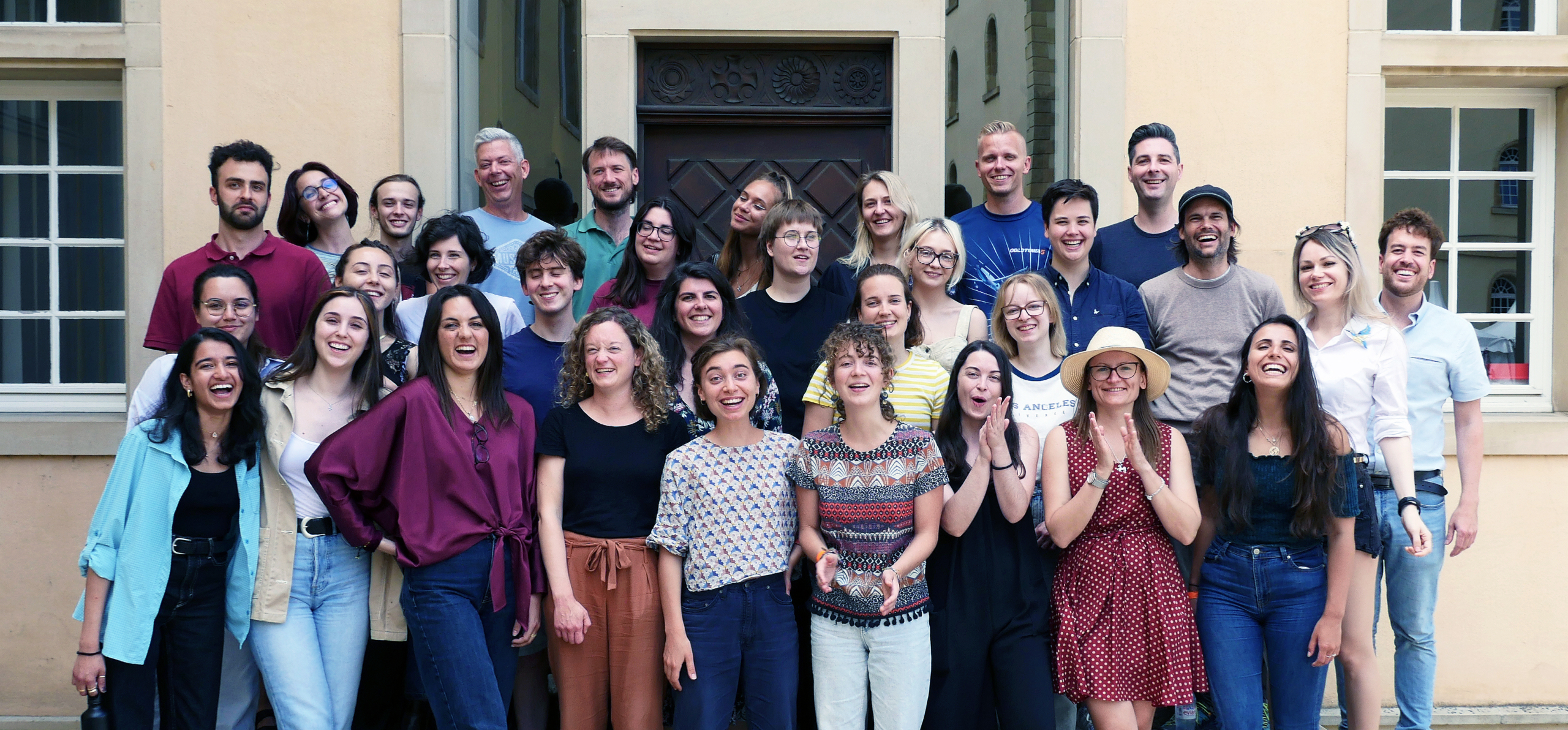EU Democracy Rally : “Building 21st Century Democracy”
Initiated by 10 European associations, the EU Democracy Rally (EUDR) aims to strengthen participatory democracy in Europe in the coming years.
Rethinking democracy
The first ever European Democracy Rally (EUDR) was held in Luxembourg from 26 June to 1 July 2022. The project was initiated by 10 European associations1 and gathered more than 30 young people (from 18 to 30 years old) from all over Europe. The idea is to pool the citizenship education methods developed by each association and to offer a framework to young people who want to set up citizen projects in their country or at the European level.
“We strive to [make] our democracies fit for the 21st century.” 2
EUDR Team 2022

EUDR Group Picture June 2022 ©arkostudio
The programme of this first edition included, for example, a reflection on the different democratic models, a role-playing game to raise awareness of human rights violations in everyday life, a simulation of a citizens’ assembly, debates, but above all, project creation. After being introduced to the methods required, the participants were put in a position to create a project around issues such as climate change, the solutions to which can be found at European level. In the long term, the objective of the EU Democracy Rally is to offer support beyond the meeting so that the projects can really take shape.
“As more groups will participate in the EU Democracy Rally, topical communities
and project groups will expand and citizen action groups all over the EU
will help to implement the changes they would like to see.” 3
Philippe Ternes, EUDR Coordinator
As a sign of the importance of the subject, the meeting was financially supported by Erasmus+, a European Union (EU) programme that invests in the fields of education, training, youth and sport.
An intercultural encounter
From Spain to Romania, from Sweden to Italy, including Poland, Ireland, Austria and Belgium, the project brought together young people from most EU countries.
The choice of Luxembourg, a historic country in the construction of the European Union, was highly symbolic. Participants unanimously testified that such a meeting had strengthened their sense of belonging to Europe. For some, like Mircea, 22, “[the experience] in Luxembourg [has] made him see things differently. [He] is even starting to think about moving to other European countries in the coming years to discover different cultures”.
Thanks to their different profiles, in terms of age (from 18 to 30 years old) or professional status (students, workers…), these young people were able to share their life experiences and draw inspiration from the pathways of others. However, the question of diversity arose. The majority of the participants came from European studies, history, law or NGO backgrounds. It is positive and constructive that people who are already politically aware can meet and collaborate, but in the current crisis of representativeness across Europe, it is crucial that the voices of a more diverse audience are heard.
« The chance of sharing ideas and to debate with other young people
coming from different countries and contexts
enriched the whole experience and my personal path for the future. » 4
Maria, 28 ans
Far from the depoliticised and disengaged portrayal of youth, the EUDR proves that young people are politically savvy and ready to mobilise. “What mattered to me was that I met people for whom politics really mattered. We came from all over, but if there was one thing we all shared, it was that we wanted to make a difference.” Adriana, 22 years old.
1Participating Organisations:
Project Lead
Zentrum fir politesch Bildung (Luxembourg)
Project Partners
Access Info Europe (Spain)
ECIT Foundation (Belgium)
European Alternatives (Italy)
Funky Citizens (Romania)
Peuple et Culture (France)
polyspektiv (Germany)
Studio Rizoma (Italy)
TechSoup Europe (Poland)
Well-Being Lab (Sweden)
Wiener Forum für Demokratie und Menschenrechte / Zentrum polis (Austria)
Autor: Marie Leveugle
(translated from French)

